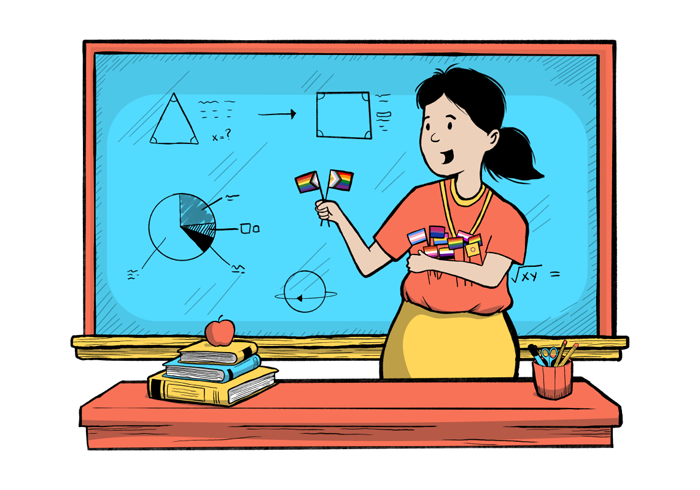Education and teaching

Reykjavík City primary schools follow the national curriculum for primary schools, with reference to the Reykjavík City Education Policy. The main objective of the Policy is for all children to grow, develop and feel happy in a democratic society that is based on human rights and respect for the diversity of human life.
Through robust school and recreation activities, children and young people gain education and experience to realize their dreams and have a positive impact on their environment and society.
Mentor
Mentor is an information system for students, parents and school staff. Guardians and students receive a Mentor password. On the family page, guardians can view their children's schedules, homework, educational assessments, attendance and more.
Lesson plans
Lesson plans describe the content and assessment methods, giving teachers, students and parents an overview of the curriculum.
Student assessment
Objective
Educational assessment in Fellaskóli aims to guide and motivate students, ensuring they always know where they stand academically. Teaching emphasizes diverse projects and topics, allowing students to demonstrate their skills in various ways. The main purpose of assessment is to guide students, showing where they have succeeded and what they need to improve or focus on. Assessment covers both knowledge and skills in different areas, evaluating engagement, work methods, knowledge, and proficiency in the subject matter. Assessment is based on the national curriculum's competency criteria.
Criteria
Fellaskóli's assessment is visible to students and parents on Mentor. The following criteria are used:
Outstanding - Competency achieved - Needs practice - Competency not achieved.
Fellaskóli does not give final grades, except for students in grades 7-10 who receive A, B+, B, C+, C, or D in spring.
Teaching methods
Personalized learning
Fellaskóli uses flexible teaching methods, personalized instruction and adapts curriculum to student needs. Teaching methods include: Early literacy, PALS, and formative learning. Icelandic language learning is a shared responsibility of all staff working with children.
Workshops
Part of student learning occurs in workshops (rotational periods). Subjects often included in workshops are design and carpentry, visual arts, textile arts, music, home economics, and swimming. Learning is divided into 8-9 week rotational periods. Students are mixed into workshop groups regardless of class division, with each grade level simultaneously in arts and practical subjects.
Development projects for upper grades
For the 2024-2025 school year, a development project focuses on upper grades, literacy, and creative schoolwork. The project includes theme weeks twice a year. These weeks regular teaching is suspended and students work on diverse group projects.
Teaching methods are further detailed in the operational plan.
Attendance guidelines
The school emphasizes student punctuality. All children aged 6 to 16 must attend school, and parents/guardians are responsible for their enrollment, attendance, and participation.
If attendance issues arise, parents/guardians and the school must respond. To ensure effective responses, Reykjavík's primary schools follow unified guidelines and rules.